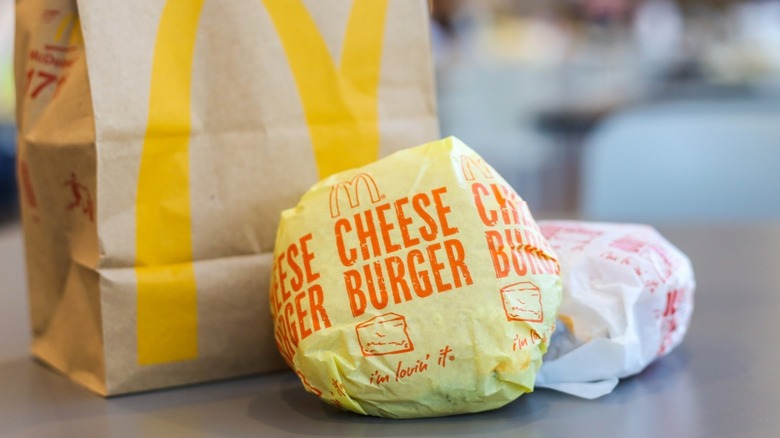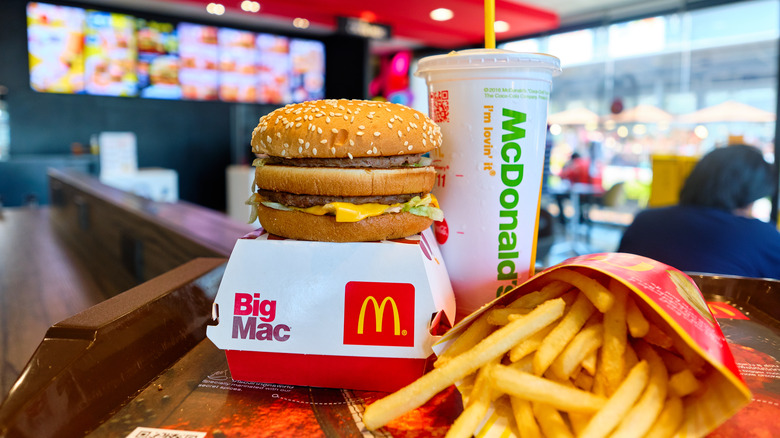The Bizarre McDonald's Cheeseburger Price Hike That Just Struck The UK
One of the most enduring international brands, McDonald's can be found in 118 countries and territories around the world (per McDonald's). The restaurant has maintained a reputation for consistency, while tailoring its menus to meet the regional preferences of its customers. For instance, the chain serves rice as a side in the Philippines (via Taylor Wells). Restaurant Business notes the prices at McDonald's also fluctuate by region, from $3.75 for its signature Big Mac burger in Austin to $6.39 in Seattle. This is partially due to state-by-state differences in minimum wage, with higher prices designed to recoup labor costs.
According to The Strategy Story, there are other factors at play. The company has relied on a low-cost pricing strategy and bundling discounts, which incentivizes customers to order more items than they might otherwise because they are cheaper when purchased together. But the volume of goods sold per customer still translates to higher profits for the restaurants. And by implementing virtual kiosks, McDonald's has managed to cut back on labor costs to keep prices down. At the same time, a dramatic price hike in the United Kingdom has shown that even the Golden Arches are not immune to historic inflation.
McDonald's hikes burger prices in the UK by 20%
To keep its prices low, according to Taylor Wells, McDonald's has worked to stay ahead of the curve. Its business strategies have included reducing construction budgets for new restaurants in certain markets, while slowing the pace of expansion so as not to exceed customer demand. Still, according to an earnings call this week, McDonald's has had to raise prices due to inflation. The price hike is expected to persist, according to CFO Kevin Ozan, with "smaller, more frequent price increases" (per Business Insider). The latest sign of inflation came with a 20% increase in the price of McDonald's cheeseburgers sold in the United Kingdom, the restaurant's first increase in 14 years, which was announced in an email on Tuesday (via Business Insider).
CFO Dive reports Ozan told investors that the company expects to see how customers react to price increases, and determine whether sales figures indicate they still believe McDonald's is a good value. The good news is that rising food and paper costs are expected to be less extreme in the fourth quarter, Ozan said. For U.S. consumers wondering if the same fate awaits their Big Mac and fries, Ozan adds, "the international side will get hit a little bit harder."

